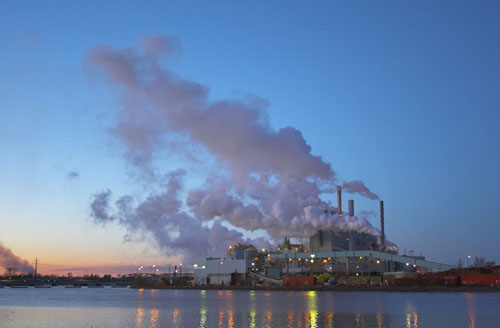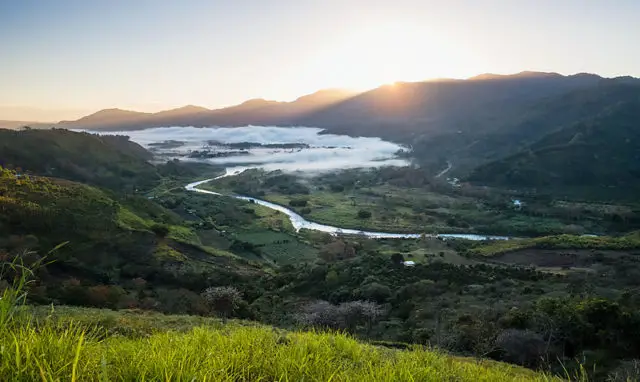Environmental pollution is nothing more than an evil derived from the unconsciousness and irresponsibility of people, thus causing damage in many cases irreparable to the environment. Today, environmental pollution represents a threat to humanity.

Costa Rica is a country with a beautiful and wonderful ecology, however, it does not escape the serious damage caused by the environmental problems that affect all that natural wealth, with the rivers being the most affected, derived from the agrochemical products of the industries, overfishing, air pollution caused by carbon dioxide emissions, decreased reforestation and an uncontrolled real estate expansion.
The origin of many diseases that affect the population today is caused by pollution, and although we are often aware of the great damage caused to the environment, we turn a blind eye to this sad reality.
Costa Rica was recently chosen as the most beautiful country in the world and, although the country maintains 25% of its territory under protected status, it loses more and more biological resources, due mainly to climate change, pollution and lack of awareness.

The “Peace with nature” policy has not been enough to curb the harmful impact on the environment of our country. It is necessary that from the government entities, through publicity campaigns for awareness on the negative impacts caused by environmental pollution, further intensification of environmental education in schools, the creation of incentive programs for companies to do more and also effective environmental protection policies.
In our country, the air quality has also been affected by the reduction of the forest on the North Pacific coast especially due to the expansion of the tourism industry, which has speculatively raised the value of Costa Rican land.
The responsibility for many of the great damages caused to the environment derives precisely from those wrong actions applied by the governments, where the negative impact that causes, for example; the destruction of large forest areas for the construction of buildings. It is more what humanity loses than the gain that is economically obtained with this type of action.
Excessive consumption by a minority of the world’s population is leading to a deficit of resources. Therefore, in recent years it has become necessary to study how we consume and what effects this has on the environment and society.
During the extraction of non-renewable natural resources for raw materials and the production of energy by the use of fossil fuels to produce goods and services., a double problem is created: on the one hand, we are altering the cycles or the regeneration capacity of some resources, such as the water cycle, and on the other hand, the industrial processes are heavily polluting land, sea, and air.
In the production and distribution of products, there is another problem: many times the price of products does not reflect the real environmental or social cost (effects of pollution or cheap labor), which affects people’s health and quality of life. These environmental and social costs are known as negative externalities. Finally, most products end up discarded in landfills or burned for energy recovery. Trash levels have doubled in the last thirty years and their management is a problem in itself.
The present ecological footprint of the Costa Rican is unsustainable since it represents 8%, more than the territory is capable of replacing. Water, energy, biomass, each of the products we consume daily requires a certain amount of precious resources for their production and, sooner or later, they will convert into more waste by-products.
“The way we are currently consuming and producing in Costa Rican contributes to current environmental problems such as climate change, pollution, production of ordinary and hazardous waste, depletion and deterioration of natural resources and loss of biodiversity”, warned the “First Report: State of the Environment in 2018”. Addressing the pattern of consumption and production “is the most serious, most urgent environmental problem in the country”, also informs the report. We can see how all those actions that harm the environment derive from unconsciousness and malpractices.
It is necessary to protect our planet with good actions by each of us, especially changing the exaggerated habits of consumption, in this way we can face with more strength the problems of overexploitation of our natural resources.

